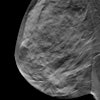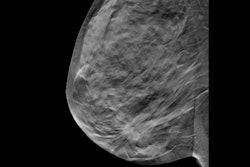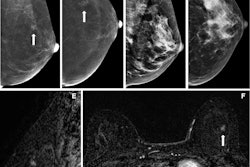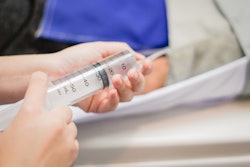The use of multivitamin supplements has no influence on mammographic breast density (MBD), according to results from a study published March 14 in the Journal of Nutrition.
As high mammographic breast density (that is, 75% or more dense tissue) increases breast cancer risk fourfold to sixfold, investigating the factors that contribute to it is of great importance. Although MBD is known to be influenced by genetic, hormonal, and lifestyle factors, the contribution nutrients make to MBD has yet to be determined.
Studies that have investigated associations between individual nutrients such as vitamin D, calcium, and carotenoids with MBD have yielded results that are either inconsistent or point to no association. However, few studies have considered the effect that these nutrients in combination might have on MBD.
A team led by Oreoluwa G. Oginni of Washington University School of Medicine (WUSM) in St. Louis noted that multivitamin supplements contain a variety of nutrients, some of which may be implicated in biological pathways affecting carcinogenesis.
“An association between multivitamin use and MBD is of particular interest because there are potential biological mechanisms through which vitamins and minerals might influence breast tissue composition and MBD,” Oginni and colleagues wrote.
One in three people in the U.S. take multivitamin supplements, with multivitamin use being high among cancer patients in particular, the group explained. However, the two studies in the literature investigating the association of multivitamin supplements with MBD yielded mixed, inconclusive findings and were limited by using either subjective or semiautomated MBD measures.
The researchers sought to correct for these limitations by using volumetric measurements for MBD for a population of 1,083 women recruited for the study during their annual screening mammograms at the Joanne Knight Breast Health Center of WUSM. The patient population was recruited in two phases, from December 2015 to October 2016 and September 2020 to February 2022. The study tracked volumetric percent density (VPD), dense volume (DV), and nondense volume (NDV). Patients self-reported their multivitamin supplement use and were classified in groups as nonusers, less than one day per week, one to three days per week, four to six days per week, and daily users. MBD was evaluated as VPD, DV, and NDV using Volpara Health's Volpara 1.5. The authors adjusted for factors including age, BMI, race, menopausal status, education, age at menarche, family history of breast cancer, parity and age at first birth, oral contraceptive use, menopausal hormone therapy use, and alcohol intake.
They reported the following:
- 55% of study participants took multivitamins, and 31.7% were daily users.
- 33.7% of white women reported that they used multivitamins, while 28.1% Black women reported the same.
- More postmenopausal women (35.3%) took them daily than premenopausal women (30%)
Overall, the findings showed no significant correlation for multivitamin use for any of the breast tissue density measurements, regardless of frequency of usage. Furthermore, race and menopausal status also did not affect the results.
More research is needed, according to the authors.
“Future studies can explore the potential interactions between dietary patterns, specific nutrients, and MBD to enhance our understanding of dietary factors and MBD and potentially breast cancer prevention,” along with studies examining any potential association of “circulating levels of multivitamin components in combination” with MBD and breast cancer risk, they concluded.
The complete study may be found here.



















